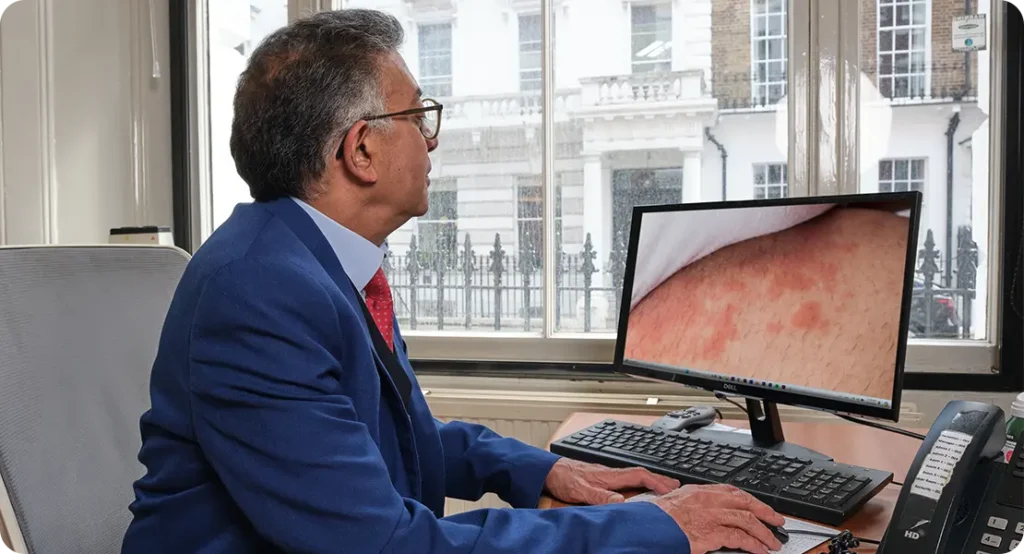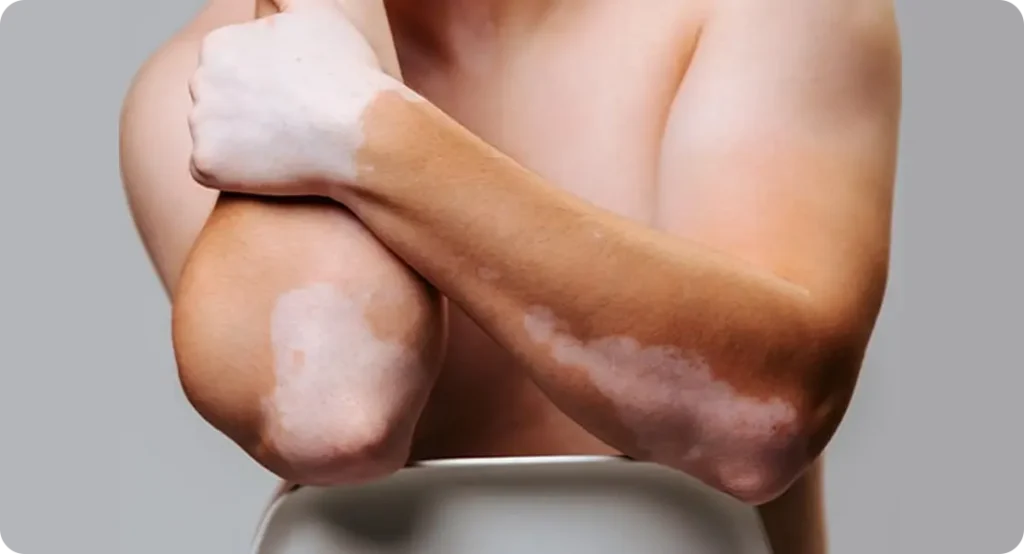When you think of dermatology, your first thought might be acne treatments, rashes, or mole checks. But there’s another side to this field that’s just as important—mental health. Skin conditions often go far beyond the surface. They can leave lasting emotional scars, damage self-esteem, and even trigger anxiety or depression. That’s why dermatologists today are paying close attention not just to what’s happening on your skin, but also to how it’s affecting your mental wellbeing.
In recent years, there’s been a growing recognition that dermatological care isn’t just about physical symptoms—it’s also about how those symptoms affect your day-to-day life, relationships, and sense of self. Conditions like eczema, psoriasis, acne, or vitiligo aren’t merely cosmetic concerns. They can influence how you see yourself and how you believe others perceive you. Even mild skin problems can feel overwhelming when they interfere with confidence, sleep, intimacy, or professional life.
More patients are opening up about the emotional burden of their skin issues, and more dermatologists are listening. This shift toward a more holistic approach is not only welcome—it’s necessary. Because when skin health and mental health are treated as connected rather than separate, patients don’t just look better—they feel better, too.
The Skin-Mind Connection Is Real
Your skin and mind are more connected than you might think. Stress can cause flare-ups, and flare-ups can cause more stress—it’s a vicious cycle. Conditions like eczema, psoriasis, acne, and vitiligo aren’t just physically uncomfortable; they’re also emotionally draining. You might feel embarrassed, anxious, or avoid social situations altogether. Dermatologists are trained to spot these signs and know that treating the skin without addressing the emotional toll is only half the job.
What many people don’t realise is that the skin and brain both originate from the same embryonic layer—the ectoderm—which may help explain this close relationship. The brain communicates with the skin through a complex network of nerves, hormones, and immune responses. That’s why stress doesn’t just “show” on your face—it can actually alter how your skin behaves, triggering oil production, inflammation, or even slowing down healing. And when the skin flares up, it doesn’t just cause physical irritation—it can quickly erode confidence and disturb your peace of mind.
This connection means that effective treatment needs to consider both ends of the spectrum. Topical creams and medication are often essential, but so are stress-reducing strategies, better sleep habits, and sometimes even psychological support. More dermatologists are now encouraging patients to open up about their stress levels, lifestyle, and emotional health. By viewing skin health as part of overall wellbeing, they can tailor a more effective and compassionate treatment plan—one that genuinely addresses the root causes and not just the symptoms.
Why Skin Conditions Hit Self-Esteem So Hard
The skin is the most visible part of your body. So, when something changes—especially on your face—it’s hard to hide. That visibility can make people feel vulnerable, exposed, or even ashamed. Teenagers with severe acne, for example, might struggle with confidence or social anxiety. Adults dealing with chronic conditions like rosacea or psoriasis often report feelings of isolation or frustration. A good dermatologist understands that supporting your skin also means supporting how you feel in it.
For many people, self-worth is tied—consciously or not—to appearance. We live in a society where “perfect” skin is idealised in adverts, films, and social media feeds. That unrealistic standard can make even mild skin concerns feel catastrophic. People with acne might avoid mirrors or decline invitations to events. Those with visible eczema or scars may feel judged or misunderstood. It’s not vanity—it’s a genuine emotional response to how the world perceives us.

Children and teenagers can be especially vulnerable to teasing and bullying, which can leave lasting psychological effects well into adulthood. In the workplace, adults with visible skin conditions may feel less confident in professional settings, which can impact performance and career progression. Dermatologists who recognise this burden are better equipped to support patients with empathy. They might offer reassurance, practical advice on camouflage makeup, or even refer patients for counselling if needed. Addressing skin concerns goes beyond aesthetics—it’s about restoring confidence and helping people feel comfortable in their own skin again.
Recognising Mental Health Struggles in the Clinic
You might not walk into a dermatology appointment expecting to talk about your mental health—but a sharp-eyed dermatologist will be watching for clues. If you seem withdrawn, overly anxious about appearance, or express distress about your condition, they’ll take note. Some will even use short screening tools to assess for depression or anxiety. This shift towards holistic care means your skin is no longer treated in isolation—your emotional wellbeing is part of the picture.
For too long, the psychological side of dermatology was overlooked or brushed aside. But today, more dermatologists understand that skin disorders can have serious psychological consequences. In fact, research shows that people with chronic skin conditions are significantly more likely to experience mental health disorders. That’s why leading dermatology clinics are training professionals to recognise the signs—whether it’s subtle body language, obsessive focus on appearance, or repeated dissatisfaction with treatment outcomes.
Importantly, these discussions are handled with care. Patients may not feel comfortable discussing their mental health unless prompted in a sensitive, non-judgemental way. Some dermatologists now use validated questionnaires, like the Dermatology Life Quality Index (DLQI), to open the door to these conversations. Others might simply ask, “How is your skin condition affecting your daily life?”—a question that invites a fuller, more honest dialogue. By acknowledging the emotional side, dermatologists can better tailor support—whether that’s adjusting treatment plans, managing expectations, or making referrals to psychologists or counsellors. It’s a modern, empathetic approach that sees patients as whole people, not just a patch of troubled skin.
The Rise of Psychodermatology
Psychodermatology is a growing subspecialty that bridges dermatology and psychiatry. It looks at how emotional states affect skin—and how skin conditions affect mental health. Some clinics now include psychodermatologists who can offer therapies like cognitive behavioural therapy (CBT), mindfulness techniques, and even medication where appropriate. This combined approach can be life-changing for patients whose skin issues are deeply entangled with emotional distress.
For people living with visible or chronic skin conditions, the psychological burden can be immense—yet often goes unspoken. Anxiety, depression, obsessive behaviours, and even post-traumatic stress can all be triggered or worsened by skin-related struggles. Psychodermatology aims to treat both sides of the equation. It’s not just about managing flare-ups, but addressing the underlying stress, shame, or trauma that might be fuelling them.
This field also recognises how psychiatric conditions can lead to dermatological issues. For example, compulsive skin picking (excoriation disorder) or hair pulling (trichotillomania) are both psychological in origin but have clear dermatological consequences. By offering integrated care, psychodermatologists help patients regain control—not just over their skin, but over their mental wellbeing. It’s an evolving discipline, but one that’s gaining traction fast, as more professionals realise the power of treating the person as a whole rather than in parts.
Helping Patients Break the Stress-Flare Cycle
Stress is one of the most common triggers for flare-ups in conditions like eczema, psoriasis, and rosacea. Unfortunately, once a flare-up begins, it usually causes even more stress. Dermatologists who understand this cycle don’t just hand out creams—they talk about stress management techniques too. That might mean suggesting relaxation practices, referring you to therapy, or simply taking the time to listen. Breaking the stress-skin loop starts with acknowledging it exists.
This cycle is especially frustrating for patients because it can feel completely out of their control. A stressful event—like a big presentation at work or relationship issues—can lead to a flare-up, which then worsens the very stress that started it. It becomes a loop of emotional and physical discomfort. In these cases, the most effective treatment plans are ones that combine medical care with lifestyle and mental health strategies.

Some dermatologists now collaborate with therapists or offer workshops on breathing exercises, meditation, or journaling. Others recommend apps that promote mindfulness or cognitive-behavioural techniques tailored to skin anxiety. Even small changes—like better sleep routines, reducing caffeine, or introducing daily walks—can make a noticeable difference. What matters is that the root stressor is addressed, not just the visible symptoms. When patients feel they’re being treated as whole people—not just a rash or a diagnosis—it can transform their outlook and accelerate their recovery.
Psoriasis, Stigma, and Isolation
Psoriasis is a chronic autoimmune condition, not a contagious rash—but that’s not always how the public sees it. People with visible plaques often feel stared at or judged. Some avoid swimming pools, gyms, or public changing rooms entirely. The emotional toll can be significant, leading to anxiety and even depression. Dermatologists who understand this stigma are in a powerful position to educate, reassure, and help patients reconnect with everyday life.
Living with psoriasis often means dealing with unsolicited comments, awkward stares, or well-meaning but misinformed advice. Many people mistakenly assume the condition is caused by poor hygiene or that it’s infectious—neither of which is true. This lack of public understanding creates a heavy emotional burden. It can erode confidence, reduce quality of life, and in some cases, lead to social withdrawal. Children with psoriasis may be bullied, while adults might feel uncomfortable in intimate relationships or at work.
The good news is that awareness is improving, and more dermatologists are advocating for a compassionate, holistic approach. This includes clear communication about what psoriasis is (and isn’t), recommending patient support networks, and involving mental health professionals where appropriate. Psoriasis may be lifelong, but isolation doesn’t have to be. With the right support—medically and emotionally—people can feel empowered to participate fully in life again, regardless of how their skin looks.
Vitiligo and the Emotional Impact of Appearance Changes
For those with vitiligo, the emotional challenge often lies in dealing with a dramatically changing appearance. The condition causes loss of pigment in patches, sometimes across large areas of the body. While not physically painful, vitiligo can shake one’s sense of identity. Some people embrace it; others find it deeply upsetting. Dermatologists can offer medical treatments, yes—but they can also offer support, validation, and referrals to mental health professionals when needed.
Vitiligo’s visibility makes it emotionally complex. Because the changes can be so pronounced—and often begin suddenly—they can impact how a person sees themselves, and how they believe others perceive them. This can affect everything from dating and socialising to simply looking in the mirror. In cultures where fair or even skin is idealised, the condition may cause shame or anxiety. It’s not uncommon for people with vitiligo to experience low self-esteem, social anxiety, or even depression.
Some individuals find confidence through acceptance and community support, especially with the rise of inclusive campaigns celebrating vitiligo in fashion and media. But that journey isn’t easy for everyone. Dermatologists can play a key role by validating a patient’s feelings, discussing treatment options openly, and signposting mental health resources. Whether someone chooses to treat, cover, or embrace their vitiligo, what matters is that they feel seen, supported, and in control of their choices.

Dermatologists as First Responders in Body Dysmorphia
Body Dysmorphic Disorder (BDD) is a serious condition where someone obsesses over perceived flaws in their appearance—often ones no one else can see. Dermatology clinics are often the first place these patients go, seeking unnecessary or excessive treatments. A skilled dermatologist will recognise the red flags and refer patients to the appropriate psychological support instead of feeding into the obsession. It’s a fine line, but a crucial one.
Many individuals with BDD genuinely believe they have something physically “wrong” with their skin, despite medical evidence to the contrary. They may fixate on minor blemishes, pores, pigmentation, or scars, and request repeated procedures or insist that treatments have “failed” even when results are objectively successful. Without intervention, this cycle can become harmful, both emotionally and physically. In some cases, patients may turn to extreme measures or develop co-existing conditions like anxiety or depression.
This is where dermatologists must balance sensitivity with responsibility. While it may be tempting to offer more treatments to keep a patient happy, that approach can reinforce the disorder. Instead, dermatologists trained in recognising BDD can gently redirect the conversation, express concern, and provide referrals to clinical psychologists or psychiatric services. Early recognition is key. With the right support, patients can begin to address the deeper emotional challenges behind their distress and start to rebuild a healthier relationship with their appearance.
Building Trust Through Compassionate Care
At the heart of this approach is trust. Patients need to feel heard, understood, and never judged. Dermatologists who take the time to ask about how a condition is affecting your life—not just your skin—build stronger relationships and get better outcomes. Whether it’s acknowledging your frustration or supporting you through a tough flare-up, that human touch matters. A kind word, a listening ear, and a reminder that you’re not alone can make all the difference.
True compassionate care goes beyond the consultation room. It’s about creating a space where patients feel safe enough to share how their skin is impacting their relationships, confidence, sleep, work, or mood. A dermatologist might be the first healthcare professional a person opens up to about body image issues, anxiety, or low self-esteem. That first conversation can be a turning point. When practitioners show genuine empathy, patients are more likely to stick with their treatment plans, report progress honestly, and ask for help when they need it.
Trust also plays a crucial role in managing expectations. Not every skin condition has a quick fix, but patients who feel listened to are more patient with the process. Compassionate care doesn’t mean overpromising—it means walking alongside the patient with honesty and support. In a world where healthcare can sometimes feel rushed or impersonal, dermatologists who lead with empathy stand out. They become not just clinicians, but trusted allies in a patient’s overall wellbeing.
The Future of Skin and Mind Health
We’re only just beginning to appreciate how deeply intertwined dermatology and mental health really are. As more clinics embrace psychodermatology and holistic care, patients will benefit from a more complete approach—one that sees them as whole people, not just cases. The future of skincare isn’t just about better treatments; it’s about better understanding. If your skin condition is affecting how you feel, speak up. The right dermatologist will know how to help—and will make sure you’re supported inside and out.
In the years ahead, we’re likely to see more dermatologists working closely with psychologists, counsellors, and even life coaches. Clinics may introduce emotional wellbeing screenings as standard practice, just like checking for allergies or medication history. Education will also play a key role—teaching patients and the public alike that mental health is not a separate issue from skin health, but an integral part of it.

Technology may help bridge the gap, too. Teledermatology platforms could soon include virtual mental health support, while apps may track both emotional triggers and physical flare-ups to identify patterns. But regardless of how advanced tools become, the core principle remains human connection. Compassion, empathy, and a whole-person approach will define the gold standard in dermatological care. As awareness grows, so will the expectation that skin health and mental health are treated with equal care—and that’s a future worth aiming for.
Final Words: Treating Skin Means Caring for the Whole Person
Dermatology has come a long way from simply prescribing creams and performing skin checks. Today, it stands at the crossroads of physical and emotional health—and that’s exactly where it needs to be. Skin conditions can affect far more than just appearance. They can impact how someone feels about themselves, how they interact with the world, and how well they cope day to day. That’s why recognising the psychological weight of skin disease is no longer optional—it’s essential.
By listening more closely, asking the right questions, and referring patients to appropriate support when needed, dermatologists can offer care that heals both visible symptoms and invisible wounds. Whether it’s a teenager struggling with acne, an adult managing psoriasis, or someone quietly living with body dysmorphia, a compassionate and informed approach can make all the difference.
The future of dermatology lies in treating people, not just patches. And the more we break down the walls between skin and mind, the more empowered, confident, and supported patients will feel. If your skin is affecting your mental health, know this: you are not alone, and help is available—on both fronts. The right dermatologist will see you for who you truly are, beyond the surface.
If you’d like to book a consultation with one of our expert dermatologists, you can get in touch with us at the London Dermatology Centre—our team is here to help.
